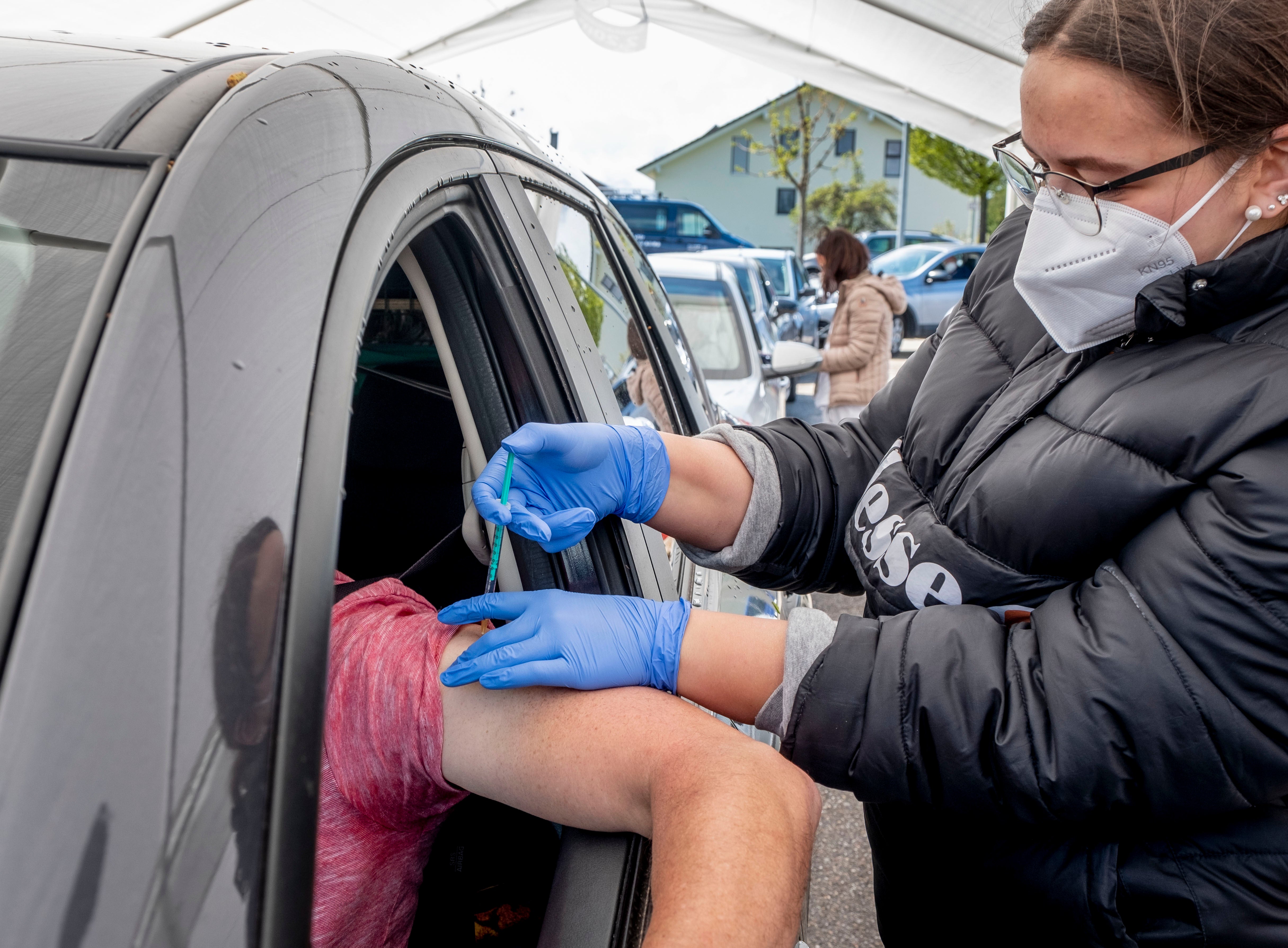Germany makes AstraZeneca vaccine available to all adults
Germany making the AstraZeneca vaccine available immediately to all adults

Your support helps us to tell the story
From reproductive rights to climate change to Big Tech, The Independent is on the ground when the story is developing. Whether it's investigating the financials of Elon Musk's pro-Trump PAC or producing our latest documentary, 'The A Word', which shines a light on the American women fighting for reproductive rights, we know how important it is to parse out the facts from the messaging.
At such a critical moment in US history, we need reporters on the ground. Your donation allows us to keep sending journalists to speak to both sides of the story.
The Independent is trusted by Americans across the entire political spectrum. And unlike many other quality news outlets, we choose not to lock Americans out of our reporting and analysis with paywalls. We believe quality journalism should be available to everyone, paid for by those who can afford it.
Your support makes all the difference.Germany is making the AstraZeneca vaccine available immediately to all adults in a push to get as many people inoculated against COVID-19 as quickly as possible, Health Minister Jens Spahn said Thursday.
Millions of doses of AstraZeneca have been safely administered in Europe but concerns linger over a rare type of blood clot seen in an extremely small number of recipients. That has prompted some people in Germany, even those in high-risk groups, to hold off on getting the shot, preferring to wait for another vaccine.
Spahn said many people in lower-priority groups waiting for a vaccine appointment would be happy to receive the AstraZeneca vaccine. Therefore, the government has decided to allow doctors' offices to vaccinate any adults with it.
“It's very, very important to be more pragmatic and flexible,” he said.
He suggested some people may have been deterred by the waiting time between AstraZeneca's two vaccine shots — currently 12 weeks in Germany, compared to half that for the Pfizer-BioNTech shot, the most popular in the country.
AstraZeneca says the second vaccine shot can be given between four to 12 weeks after the first. Spahn said the government would now leave it “in the hands of the doctors” to decide when to give the second vaccination within the four to 12 week timeframe.
The European Union's drug regulator has approved four coronavirus vaccines: two-shot vaccines from AstraZeneca, Moderna and Pfizer and a one-shot vaccine from Johnson & Johnson.
Germany's vaccine rollout was much criticized for its slow start. but has dramatically picked up pace, with 15 million shots given in April, as many as in the three previous months combined, Spahn said.
On April 28, Germany administered more than 1 million doses in a single day for the first time.
Germany has counted over 84,000 COVID-19 deaths in the pandemic.
___
Follow more of AP’s pandemic coverage at https://apnews.com/hub/coronavirus-pandemic and https://apnews.com/hub/coronavirus-vaccine